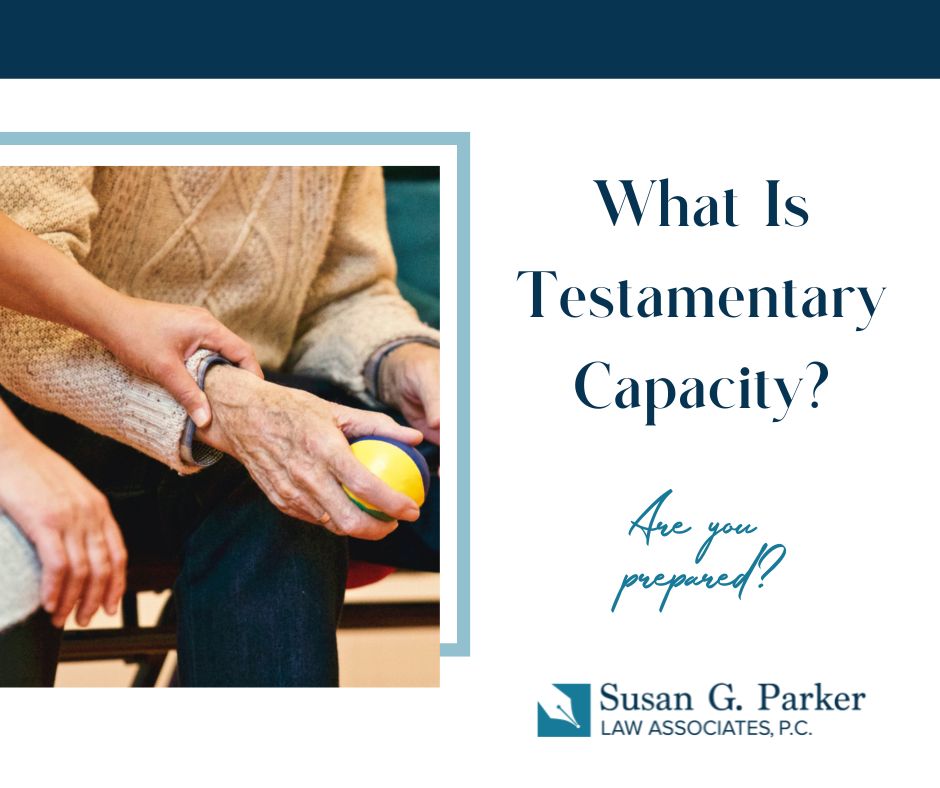To be able to write a Will, most states require that you be eighteen years of age and have “testamentary capacity.” This means that you must be of “sound mind” or have a general idea of what you own and who your heirs are. “Capacity” here means the ability to understand and appreciate the consequences of one’s own actions.
- There are different legal standards of capacity that vary depending on the specific task at hand.
For example, you need a high level of legal capacity to sign a business document. But to sign a Will, it may be enough to know who your relatives are and have a general idea of what you own. A Will should not be signed when a person’s judgment is impaired or clouded by a medical condition or medication.
As people age, their mental capacity may be called into question. If there is concern as to whether the person is able to sign a Will, it’s important to meet with an attorney sooner rather than later. Even if a person has mild dementia, he or she may have sufficient capacity to sign a Will. An attorney can sign an affidavit at the time of a Will execution concerning a testator’s capacity, in case it is ever called into question.
- Check your state’s laws to determine how this is done in your state, and if you have questions or need any guidance, feel free to call Susan G. Parker Law Associates, P.C. at 914-923-1600 to schedule a consultation!
#lawyer #estatelaw #attorneylife #estateplanning #trusts #protectyourassets



